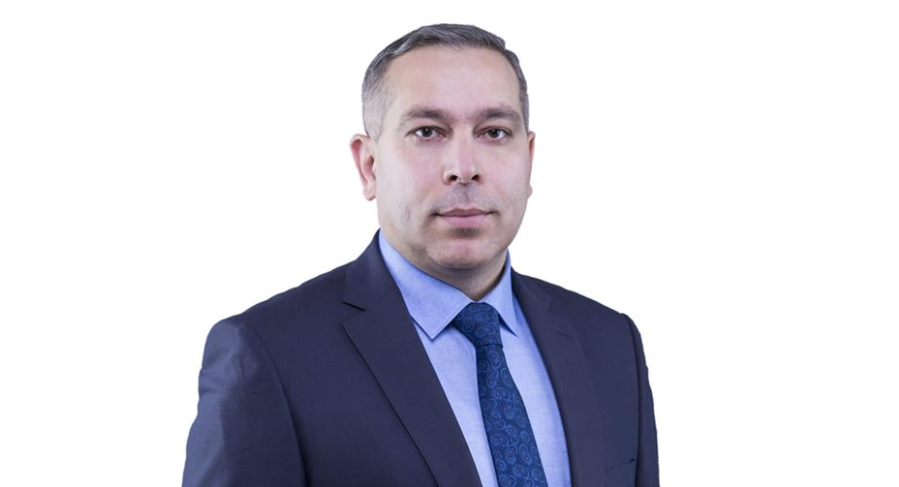- Yazarlar
- 31 İyul 2024 19:03
- 16 305
Who’s casting spells this time, Abi?

Yesterday, the special representatives of Turkey and Armenia for the normalization process, Serdar Kılıç and Ruben Rubinyan, met at the interstate border. The representatives agreed to mutually facilitate visa procedures for diplomatic passport holders. According to the official information, the parties confirmed their agreement to continue the normalization process without any preconditions. The special representatives also reaffirmed the issues agreed upon in their previous meetings. Additionally, Kılıç and Rubinyan agreed to evaluate the technical needs that would be required if the Akyaka/Akhurik railway border gate is put into use in line with regional developments.
In short, it appears that official Ankara sent a wooden sword to the meeting with Rubinyan. And this wooden sword has lost its edge so much that it hugged Rubinyan tightly, as if it had longed for an Armenian face.
This is not the first time a "normalization process" has been initiated between Turkey and Armenia. At one time, the "Zurich process," which was directly against Azerbaijan's strategic interests, was conducted, and football diplomacy was pursued. There were even those who scolded Azerbaijan, which opposed the process with fraternal concern. At that time, Abdullah Gül was the President of Turkey, and Fethullah Gülen's group was acting as a parallel structure in the brotherly state. The process failed, and we collectively and objectively blamed the "honored guest" of Pennsylvania and the US, which hosts him. Now, is Fethullah Gülen still casting spells in official Ankara?
What kind of contradiction is this, my friend? Until yesterday, the Turkey-Armenia opening was being carried out in parallel with the Azerbaijan-Armenia peace talks. The process progressing in this way was both appropriate and beneficial to the "one nation, two states" mentality. Until yesterday, Turkey was resisting the proposal to open the Kars-Gyumri railway and saying "no." For this answer to change, Armenia has neither abandoned its territorial claims against Turkey, nor withdrawn from its genocide accusations, nor opened the Zangezur corridor. What urgency, impatience, or lack of principles is this?
"Unconditional normalization" means that a message has come to Turkey from somewhere. Very well, but what will Turkey receive or gain in return? If those directing Turkey's foreign policy prefer the "it is excellent" phrase that some politician in the West might say to the will, love, and opinion of the Azerbaijani people, this is already a Fethullah Gülen approach.
First and foremost, Turkey, as an established state, must understand its historical responsibility. The fact that Armenians are a problem for us Azerbaijanis is directly related to Ottoman history. In the early 20th century, it was Armenian gangs fighting against the Ottomans and Ottoman generals of Armenian origin who slaughtered and displaced our compatriots in the historical Azerbaijani lands - the present Armenian territories. The emergence of an artificial state called "Armenia" was considered to prevent these gangs from advancing into our country's interior and deepening chaos. Due to the defeat of Ottoman troops in the Battle of Sardarabad, the Armenian state was established not in the claimed Ottoman territories but in the northern Azerbaijani khanates' lands.
Speaking of history, Mr. Serdar Kılıç should take an interest in Halil Bey Menteşe, who represented the Ottoman Empire at the Batumi peace conference. The experienced politician of the great empire created a problem source for future Turkish generations by getting caught up in the aura of the process. While we are so close to solving our common historical problem today, giving Armenia a breath with a superficial kiss is political and geopolitical inflation for Turkey.
A brother must tell the bitter truth to another brother when needed. Turkey's pursuit of utopias, like praying in Al-Aqsa Mosque, creates serious problems both for itself and for us. On the contrary, when Ankara turns its eyes to the Turkic world, it strengthens itself and its kindred republics. Turkey's unconditional dialogue with Armenia, drawing projects, and building infrastructure is nothing more than the next utopia. If Ankara's diplomats believe they will achieve more agile and constructive success in negotiations with "unconditional" talks, then they should not overlook the possibility that Armenia will sabotage the process under the influence and pressure of Russia and Iran.
I am confident that Turkey's national forces and state intelligence will stop the policy of appeasing Armenia, which they call the "process," and return the sword drawn over the Turkic World, whether in Anatolia, Azerbaijan, or Central Asia, to its sheath.
Taleh ŞAHSUVARLI







